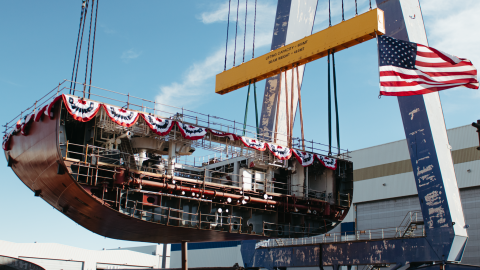Messrs. Grabow and Lincicome’s criticism of the Jones Act and America’s maritime industry includes one important truth: America needs a more robust commercial shipping and shipbuilding industry to compete with China. Serious work is being done to develop policy solutions. Changes recommended in a recent report include tripling the size of the U.S.-flag commercial fleet, leveraging that fleet to build 15 high-tech commercial ships in America each year, reforming existing programs and developing a new, second American ship registry to counter gray-zone tactics and supply-chain weaponization. These changes could roll out quickly and give America important new tools in competing with China.
Waiving the Jones Act and scrapping the ad valorem tax on ship repairs would move in precisely the wrong direction. Hard economic facts and government strategy—hundreds of billions of dollars in government support along with labor and regulatory costs that are 75% lower than U.S. costs—explain clearly why China’s maritime industry is dominant and America’s is so much smaller. Those are the facts that drive career choices and investment decisions.
Claims that America’s maritime industry is smaller because it suffers from protectionism-induced competitive apathy are both wrong and dangerous if they affect policy decisions. Standard economic indicators show that shipping and shipbuilding are tough, intensely competitive businesses, whether conducted in domestic markets under U.S. rules or in hyperliberalized international markets. Opening U.S. domestic markets to foreign ships or scrapping the ad valorem tax on ship repairs wouldn’t change those hard economic facts but would lead inevitably to the downsizing and eventual destruction of America’s commercial shipping and shipbuilding industries.















